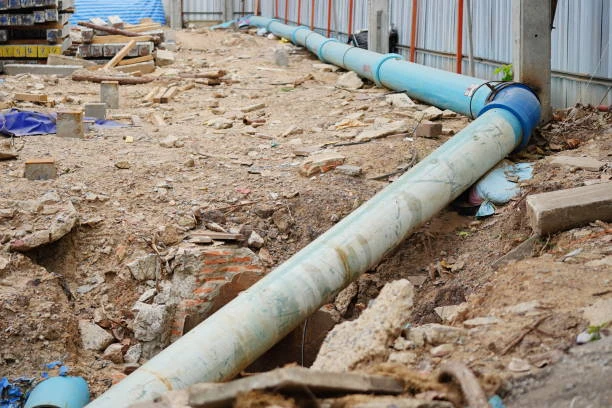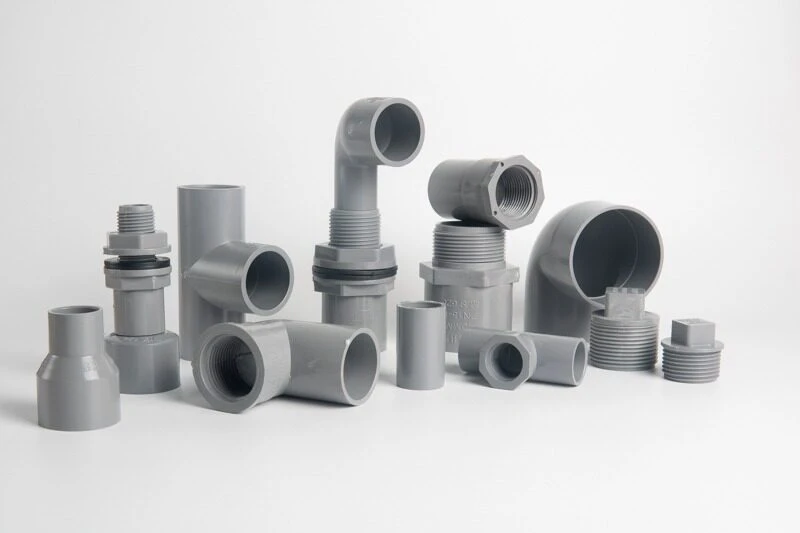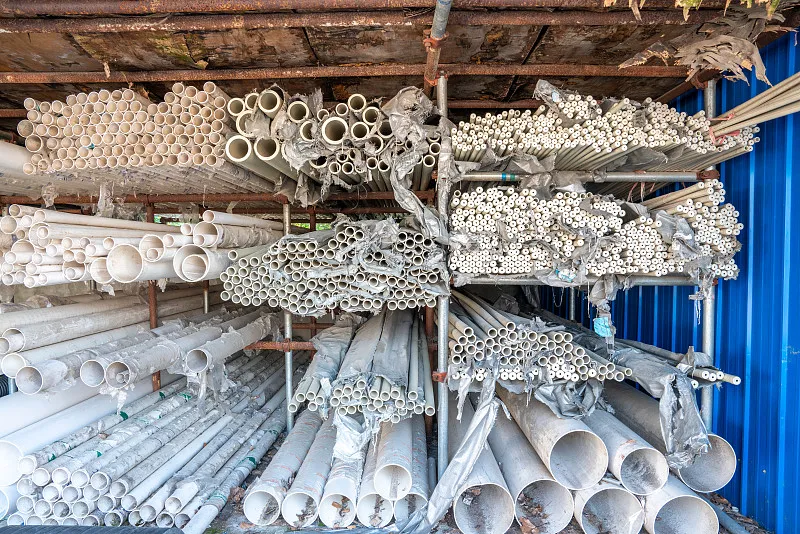Introduction in Plastic Pipes and Oilfield Equipment
Environmental, Social, and Governance (ESG) considerations are increasingly shaping investment decisions across industries. As more investors and stakeholders focus on sustainability, ethical practices, and long-term value creation, certain sectors are under scrutiny, particularly those related to fossil fuels and non-sustainable practices. Among these sectors, plastic pipes and oilfield equipment have found themselves at the center of ESG debates due to their environmental impact, potential contribution to climate change, and challenges related to waste and resource depletion.
In this article, we’ll explore the reasons why certain ESG-minded investors might hesitate to invest in plastic pipes and oilfield equipment, as well as the counterarguments that suggest opportunities for improvement within these sectors. We will also look into how companies in these industries are attempting to reconcile their business models with the growing demand for more sustainable, responsible practices.
The Rising ESG Movement and Its Impact on Industries
The ESG movement has gained tremendous momentum in recent years, driven by the growing recognition that environmental sustainability, social responsibility, and strong governance are integral to the long-term success of both companies and economies. Investors are increasingly evaluating companies not only based on their financial performance but also on their impact on the planet, their employees, and their communities.
As such, industries that have historically been associated with high environmental footprints, such as those involved in oilfield equipment and plastic pipe manufacturing, are under more scrutiny than ever before. Investors are faced with questions about whether their capital should support companies that contribute to climate change, environmental degradation, and long-term ecological harm.
The dilemma is even more pronounced in sectors like plastic production, where companies are often seen as contributing to plastic pollution, and oilfield equipment, where fossil fuel extraction continues to be a major contributor to global greenhouse gas emissions. In this context, we’ll explore some of the reasons why investors may choose to avoid these sectors despite their significant economic role.
Why Investors Are Cautious About Plastic Pipes
Plastic pipes have become a mainstay in infrastructure development and construction. Made primarily from materials such as Polyvinyl Chloride (PVC), High-Density Polyethylene (HDPE), and Chlorinated Polyvinyl Chloride (CPVC), plastic pipes offer advantages such as corrosion resistance, ease of installation, and cost-efficiency. However, there are several ESG-related concerns that could deter investors from buying into companies that manufacture plastic pipes:
1. Plastic Waste and Pollution
One of the most pressing environmental concerns surrounding plastic pipes is their contribution to plastic waste. While plastic pipes themselves are durable and have long lifespans, they are often made from materials that are non-biodegradable. When these pipes eventually reach the end of their life cycle or are improperly disposed of, they contribute to the larger global issue of plastic pollution.
The improper disposal of plastic pipes can lead to environmental degradation, particularly in landfills and water bodies. As plastic pollution has emerged as a critical issue, many investors are avoiding sectors that contribute to this growing environmental crisis. The global push to reduce plastic waste and move toward more sustainable, recyclable materials has led some investors to reconsider their involvement in industries that use plastics as their primary raw material.
2. Carbon Footprint of Plastic Production
The production of plastic pipes requires the use of petrochemicals, which contribute to carbon emissions. While plastic pipes offer many advantages, such as being lightweight and durable, their production process often involves the use of fossil fuels, making them less environmentally friendly than materials like copper, steel, or concrete.
In addition, plastics production is energy-intensive, requiring significant amounts of natural resources, which further exacerbates the environmental concerns. As governments and corporations set more ambitious carbon reduction goals, companies in the plastic pipe manufacturing space may be under increasing pressure to reduce their emissions or adopt more sustainable production practices.
3. Recycling Challenges
Although some types of plastic pipes, such as HDPE, are recyclable, the recycling rate for plastic pipes remains low compared to other materials. This is due in part to the challenges involved in sorting, collecting, and processing these pipes once they are discarded. A lack of infrastructure for recycling plastic pipes has led to significant volumes of waste piling up in landfills or entering the waste stream.
Investors who are committed to sustainable practices may view the low recycling rates of plastic pipes as a significant red flag, especially as governments worldwide are implementing stricter recycling regulations. This is a key reason why some ESG-focused investors might avoid companies in the plastic pipe industry unless there is a clear path to greater sustainability through improved recycling efforts or the development of biodegradable alternatives.

Why Investors Are Cautious About Oilfield Equipment
The oil and gas industry has long been a target of ESG criticism, with oilfield equipment companies coming under fire for their role in the extraction, production, and transportation of fossil fuels. While oil remains a crucial energy source in the global economy, the extraction and use of oil have significant environmental impacts. Here are some key ESG concerns surrounding oilfield equipment:
1. Contribution to Climate Change
The most significant ESG concern surrounding the oilfield equipment industry is its direct contribution to climate change. Oil extraction, refinement, and consumption are among the largest sources of greenhouse gas emissions globally. As the world faces growing pressure to transition to cleaner energy sources, fossil fuel companies are increasingly viewed as part of the problem rather than the solution.
Companies that manufacture or supply oilfield equipment are seen as enablers of fossil fuel extraction, and their involvement in this industry may discourage investors focused on reducing global carbon emissions. The movement toward a low-carbon economy, supported by international agreements such as the Paris Climate Accord, has led many investors to divest from fossil fuel-related industries, including oil and gas production.
2. Environmental Degradation and Oil Spills
Oilfield operations, especially in remote or offshore environments, can have catastrophic environmental impacts, including oil spills, water contamination, and habitat destruction. The risks associated with oil extraction—whether from drilling or fracking—pose significant threats to local ecosystems, water supplies, and biodiversity.
Given these risks, many ESG-conscious investors are increasingly steering clear of companies that provide oilfield equipment unless they have committed to improving environmental safety standards and adopting cleaner, more sustainable practices. The potential for long-lasting environmental harm from oilfield operations has heightened the pressure for companies to prioritize responsible extraction methods and stricter environmental controls.
3. Social Responsibility and Worker Safety
The oilfield equipment industry also faces criticism for the working conditions of those employed in the sector. Oilfield workers often face dangerous and unhealthy work environments, with the potential for accidents, exposure to harmful chemicals, and long-term health risks.
The social aspect of ESG investing emphasizes the importance of fair labor practices, worker safety, and community health. As awareness of social responsibility increases, investors are scrutinizing the safety and well-being of those working in the oilfields and questioning whether companies are doing enough to protect their employees and the surrounding communities.
How Can Plastic Pipes and Oilfield Equipment Companies Improve Their ESG Standing?
Despite these concerns, there are several ways that companies in both the plastic pipe and oilfield equipment industries can improve their ESG performance and potentially address investor concerns:
1. Sustainable Production and Materials
For companies manufacturing plastic pipes, transitioning to more sustainable production methods is a crucial step in addressing environmental concerns. This could involve using recycled plastics, developing biodegradable alternatives, or increasing the recyclability of the pipes themselves. Manufacturers could also explore using renewable energy in their production processes to reduce their carbon footprint.
2. Innovation in Plastic Pipes and Oilfield Equipment
In the oilfield equipment industry, companies can invest in developing cleaner, more efficient extraction technologies, such as carbon capture and storage (CCS) or renewable energy-based solutions. Oilfield equipment manufacturers can also focus on producing equipment designed to minimize environmental damage, reduce energy consumption, and enhance safety standards for workers and local communities.
3. Transparency and Reporting
Transparency in environmental impact reporting, social responsibility initiatives, and governance practices is key to gaining the trust of ESG investors. Companies that actively disclose their ESG performance and show measurable progress toward sustainability goals can demonstrate their commitment to responsible business practices.
Conclusion in Plastic Pipes and Oilfield Equipment
While plastic pipes and oilfield equipment are essential to global infrastructure and energy needs, they come with significant ESG challenges. The growing demand for sustainable and ethical investments has led many investors to reevaluate their portfolios, and sectors like plastic manufacturing and oilfield extraction are under increased scrutiny. However, by embracing sustainable practices, developing new technologies, and improving transparency, companies in these industries can mitigate their environmental and social impact and regain investor confidence.
For ESG-conscious investors, the key is not necessarily avoiding these sectors altogether but rather supporting companies that are actively working toward reducing their negative impact and adopting more sustainable, responsible practices.
Frequently Asked Questions (FAQ)
1. Why are investors avoiding companies that produce plastic pipes?
Investors are concerned about plastic waste, the carbon footprint of plastic production, and low recycling rates, all of which contribute to environmental degradation. As plastic pollution becomes a growing global issue, many ESG-focused investors are cautious about supporting industries that contribute to this problem.
2. What are the key ESG concerns regarding oilfield equipment companies?
The primary ESG concerns are the contribution of oilfield equipment companies to climate change, the environmental risks associated with oil extraction (such as oil spills and habitat destruction), and worker safety issues in the oilfields.
3. Can companies in the plastic pipes and oilfield equipment industries improve their ESG standing?
Yes, both industries can adopt more sustainable practices, such as using recyclable or biodegradable materials for plastic pipes, and developing cleaner, more energy-efficient technologies for oil extraction. Transparency and a commitment to improving environmental and social impacts are also key.
4. What are some alternative materials to plastic pipes?
Alternative materials to plastic pipes include copper, steel, concrete, and clay. These materials are often more durable and recyclable but may come with higher costs and installation challenges.
5. How can oilfield equipment companies reduce their environmental impact?
Oilfield equipment companies can reduce their impact by adopting cleaner extraction technologies, investing in carbon capture and storage, improving energy efficiency, and prioritizing safety to minimize environmental harm and protect local communities.


















